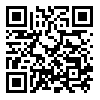Volume 6, Issue 1 (3-2025)
2025, 6(1): 76-95 |
Back to browse issues page
Ethics code: irct20211107052984n1
Download citation:
BibTeX | RIS | EndNote | Medlars | ProCite | Reference Manager | RefWorks
Send citation to:



BibTeX | RIS | EndNote | Medlars | ProCite | Reference Manager | RefWorks
Send citation to:
Kajbaf M B, Samadi M. (2025). Investigation of the Importance of Learning based on Teachers' Play with Children, with Emphasis on Vygotsky's and Piaget's Theories. Journal of Childhood Health and Education. 6(1), 76-95. doi:10.32592/jeche.6.1.76
URL: http://jeche.ir/article-1-274-en.html
URL: http://jeche.ir/article-1-274-en.html
1- Professor, Department of Psychology, Faculty of Education and Psychology, University of Isfahan, Isfahan, Iran
2- Ph.D Candidate in General Psychology, Faculty of Education and Psychology, University of Isfahan, Isfahan, Iran
2- Ph.D Candidate in General Psychology, Faculty of Education and Psychology, University of Isfahan, Isfahan, Iran
Abstract: (3094 Views)
Background and Aim: Young children's play has been the subject of hundreds of educational and psychological studies over the past half-century. Jean Piaget and Lev Vygotsky are among the influential theorists in educational methods, especially during childhood. Research Methods: The present applied research is based on the philosophy of pragmatism and is of mixed type (quantitative-qualitative). The research method is mixed and exploratory. The present study was conducted in the qualitative part using the theme analysis method. The statistical population in the qualitative part was experts (first- to sixth-grade teachers of primary school in District 2 of Isfahan City, Iran) who were selected using the snowball method. Data were collected through semi-structured interviews with experts and continued until theoretical saturation was achieved. For the quantitative part, a sample of 60 students from first to sixth grade of primary school in District 2 of Isfahan City was studied. Results: The results indicated significant differences in the scores of motor skills, language, problem-solving, creativity, and critical thinking in students who participated in game-based classes compared to students who participated in traditional classes. There is a significant difference in students' satisfaction with learning in game-based classes compared to traditional classes. The level of interaction and participation in game-based classes is significantly different from traditional classes. Discussions: This study presented the importance of play-based learning between teachers and children, providing a unique opportunity for teachers and parents to use this tool to enhance learning.
Type of Study: Research |
Subject:
Special
Received: 2024/09/23 | Accepted: 2025/05/13 | Published: 2025/06/21
Received: 2024/09/23 | Accepted: 2025/05/13 | Published: 2025/06/21
Extended Abstract [HTML 31 KB] (22 Download)
Send email to the article author
| Rights and permissions | |
 |
This work is licensed under a Creative Commons Attribution-NonCommercial 4.0 International License. |




